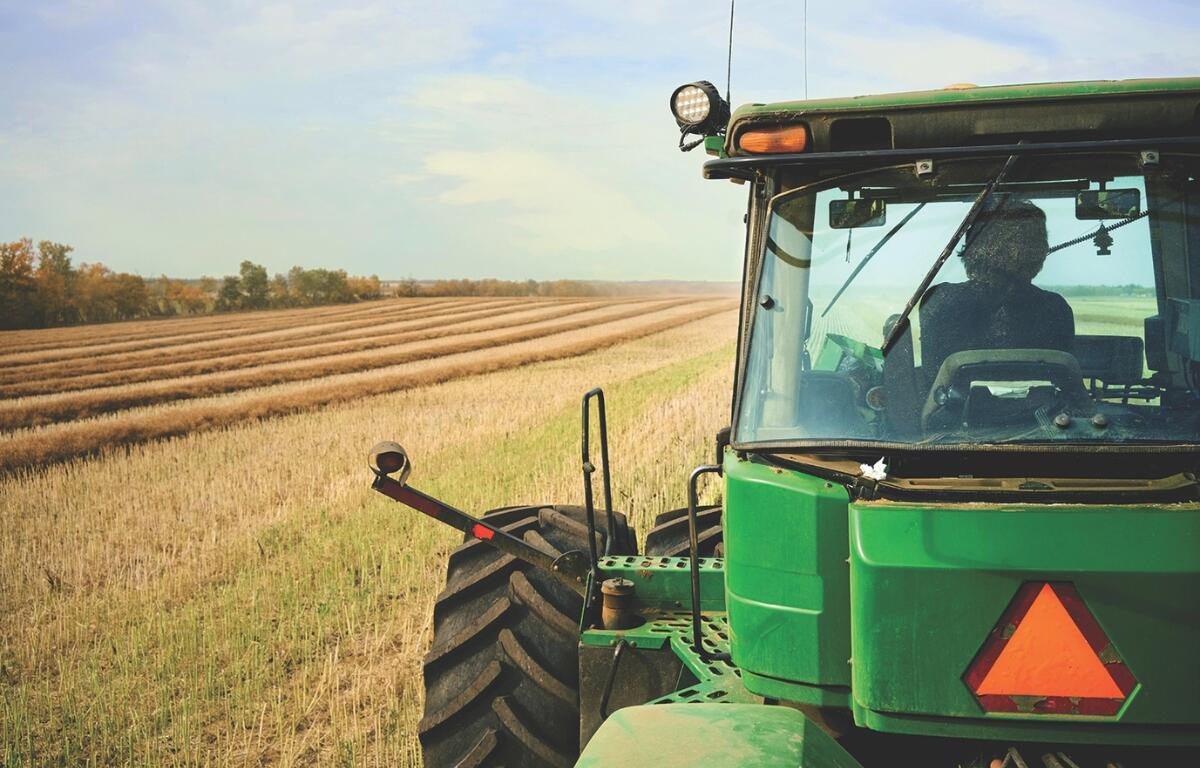RICHMOND, VA (Virginia Farm Bureau) — Candidates for governor, lieutenant governor and attorney general have partnered with Virginia Farm Bureau Federation AgPAC, a nonpartisan political action committee, to present their stances on agricultural and forestry issues that align with Farm Bureau policy.
While endorsements will not be issued for individual candidates for the top spots in state leadership this year, farmers serving on the AgPAC board of trustees met with all six campaigns and briefed them on important agriculture and forestry issues. Candidates were then given the opportunity to present their agriculture and forestry platforms to the full AgPAC board of trustees.
In-kind contributions were offered to candidates who presented positions that help promote specific agriculture and forestry issues aligned with Farm Bureau policy.
Both gubernatorial candidates, Democrat Abigail Spanberger and Republican Lt. Gov. Winsome Earle-Sears, embraced the opportunity to share their ideas on issues important to farmers.
Spanberger’s top priorities included expanding access to markets for Virginia farmers, preserving working farm and forest lands, promoting rural economic development, ensuring farmers have access to labor, fully funding voluntary conservation programs and expanding agricultural education and support for Virginia’s land grant universities and Virginia Cooperative Extension programs.
“I worked with Virginia’s farmers to amplify their voices when I was in Congress by moving legislation that addressed their issues,” Spanberger said. “I was proud to receive awards from Farm Bureau and Virginia Cattlemen’s Association recognizing this work. I will do the same as governor and ensure that agriculture and forestry have a seat at the decision-making table.”
Earle-Sears emphasized her commitment to reducing taxes, supporting job creation, and preserving Virginia’s farmland and forestry through clean energy solutions like biomass. She voiced strong support for broadband expansion, and maintaining right-to-work and right-to-farm laws, while opposing increased pesticide regulations and minimum wage hikes. Earle-Sears also pledged to establish a governor’s office in Southwest Virginia to ensure accessibility and representation for rural communities. On environmental issues, she praised Virginia farmers for their efforts to protect the Chesapeake Bay, and called on neighboring states to uphold their responsibilities.
“I want you to know that I want to invest in you, but I think more importantly, I trust our farmers,” Earle-Sears said. “I trust our farmers and foresters, and our entire commonwealth benefits because of you. I will fight for your interests in Richmond. I will continue to fight for you. As governor, that is my promise.”
Four other statewide candidates agreed to meet with the AgPAC board—lieutenant governor candidates Democrat Sen. Ghazala Hashmi and Republican John Reid, and candidates for attorney general, Republican Attorney General Jason Miyares and Democrat Jay Jones.
“These candidates valued the opportunity to have meaningful conversations with farmers, exploring ways they might support agriculture through their roles if elected,” said Martha Moore, senior vice president of VFBF governmental relations. “We’re excited to assist these six statewide candidates in sharing their perspectives on key agriculture and forestry topics with farmers throughout Virginia. We believe that working together will bring attention to issues that matter in rural communities and help farmers make informed decisions ahead of the Nov. 4 election.”
Hashmi recognizes that agriculture and forestry are more than just industries; they are a way of life for many Virginians. Her vision centers on economic growth, workforce development and land stewardship, including strengthening the Virginia Agricultural Best Management program and promoting voluntary conservation practices to preserve Virginia’s working lands. She is committed to closing the broadband gap to ensure rural communities can thrive in the digital age and supports climate innovation through smart solar development on existing infrastructure. “I want to use this opportunity to elevate rural voices and build lasting support for the vital work happening in our agricultural and forestry communities,” Hashmi said.
Reid says he is committed to sustaining family farms and securing our food supply because a stronger agricultural foundation means a stronger Virginia. He supports increased funding for BMPs, empowering farmers to meet Virginia’s water quality goals while protecting our natural resources. Reid opposes reinstating the estate tax, recognizing the burden it places on landowners and the threat it poses to farm viability. He advocates for preserving farmland through strategic solar siting, and stands strong in defending Virginia’s right to farm—ensuring agriculture remains a cornerstone of Virginia’s economy and way of life.
Miyares reaffirmed his commitment to protecting Virginia’s right-to-work law, emphasizing its importance in attracting businesses and supporting the state’s workforce, including agribusiness. He pledged to oppose efforts that would hinder employment opportunities or burden farmers with unnecessary regulations, including those promoting animal rights. Miyares also voiced strong support for local authority in solar siting decisions, noting that wind and solar alone cannot meet Virginia’s energy needs over the next two decades. His focus remains on getting Virginia back to work and back to business—especially in vital sectors like agriculture.
Jones says he understands the economic challenges facing agriculture today and is committed to offering predictability and stability to support farmers and small business owners across the commonwealth. He believes that regulations play a vital role in protecting the environment and ensuring food safety. However, Jones advocates for science-based policies that are flexible, cost-effective, and adaptable to local conditions—so farmers can thrive without unnecessary burdens. Jones supports simplifying regulations to foster entrepreneurship and competitiveness in both national and global markets. He is especially focused on reducing barriers for beginning farmers, helping them build sustainable businesses and contribute to Virginia’s agricultural legacy.



